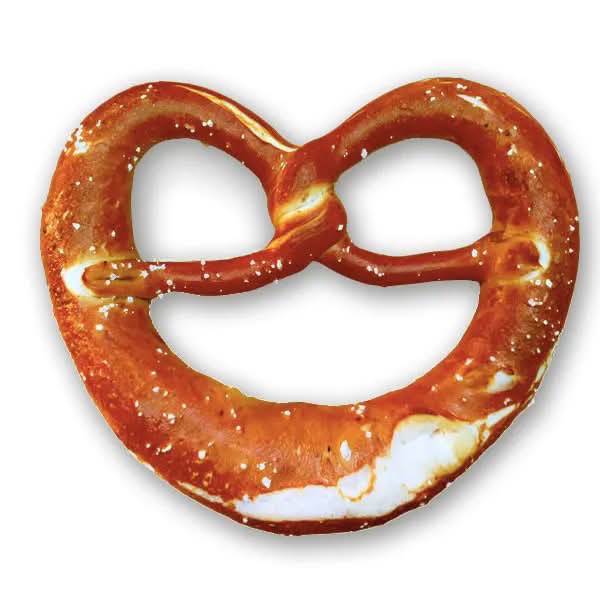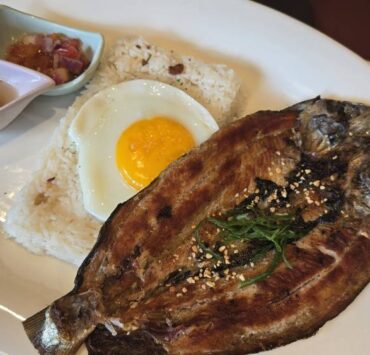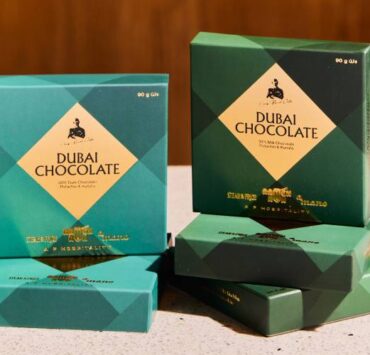Penance, piety and pretzels

There’s more to a pretzel than just a baked good made with flour, water, and salt. There are many symbolisms attributed to the twisted bread, and many tales surrounding it.
In the olden days, pretzels were given as a reward to children who mastered their prayers.
According to Food and Wine’s piece on the religious history of pretzels, legend has it that in 610 CE, a monk distributed leftover twisted bread to his students. The breads were said to look like hands crossed in prayer. He named it “pretiola,” a Latin word which translates to “little rewards.”
In the Middle Ages, the monks gave pretzels to the poor. This led to pretzels being thought of as symbols of good fortune and prosperity, for the sustenance they bring.
In some parts of the world, pretzels are also hidden with eggs for the traditional Easter Egg hunt.
Over time, the twisted breads were perceived as auspicious treats. In some cultures, they are handed out during the New Year for good luck and prosperity.
Sa pretzel, may forever! When pretzels are served during wedding celebrations, the bride and groom go through a ritual of “breaking a pretzel.” Its shape is believed to express unity and infinity. Thus, with a pretzel, I pledge my eternal love to you.
Made with just flour, water and salt, pretzels are appropriate for fasting, thus making the bread the ultimate Lenten fare. Furthermore, it is associated with penance and piety: The coiled parts of the bread are said to resemble praying hands, while the holes symbolize the Holy Trinity (Father, Son, Holy Spirit).
There is so much more to a pretzel than one can imagine. It is an astonishing creation that brings good tidings, as it nourishes in many ways.

Food for the soul
As we celebrate the Paschal Triduum, allow me to leave you with food to nourish your soul—something to reflect on from Salvador G. Agualada Jr., CMF, professor at the Loyola School of Theology and the Institute for Consecrated Life in Asia:
“Last Palm Sunday, as we commemorated Jesus’ triumphant entry into Jerusalem, we began our celebration of Holy Week. This is the most important week in the Christian calendar, for it is when we remember and celebrate the Paschal Mystery—Jesus’ passion, death, and resurrection, through which He won our salvation from sin and death. We enter most deeply into this mystery through the Paschal Triduum, which begins today and continues until Easter Sunday.
According to Fr. Buddy, the Paschal Triduum—which begins on the evening of Holy Thursday and ends with Evening Prayer on Easter Sunday—is not a series of separate events, but one continuous, unified celebration of Christ’s Paschal Mystery: His Passion, Death, and Resurrection.
If there is one word that captures the meaning of Holy Week, it is love, he said. The Cross of Jesus is the greatest sign of God’s absolute love for us and of our deepest worth as human beings. On the Cross, Someone believed we were worth dying for—worth every pain and suffering—and that Someone is the Son of God.
The liturgies of the Triduum do not merely help us remember past events. But rather, they make present the saving grace of Christ’s self-giving love and victorious resurrection. This is especially true in the Eucharist, which we celebrate as the living memorial of the Paschal Mystery.
Finally, the Risen Lord promised His disciples, before ascending into heaven, that He would be with them always—because in the Incarnation, He became human forever. As Emmanuel, “God-with-us,” He can say to each of us: “You’ll go nowhere tomorrow that I haven’t already been.” “Do not be afraid” (an expression found 365 times in the Bible), because “I am with you, ALWAYS,” and “I hold your tomorrows in my hands.”
www.reggieaspiras.com, @iamreggieaspiras on IG and FB


















